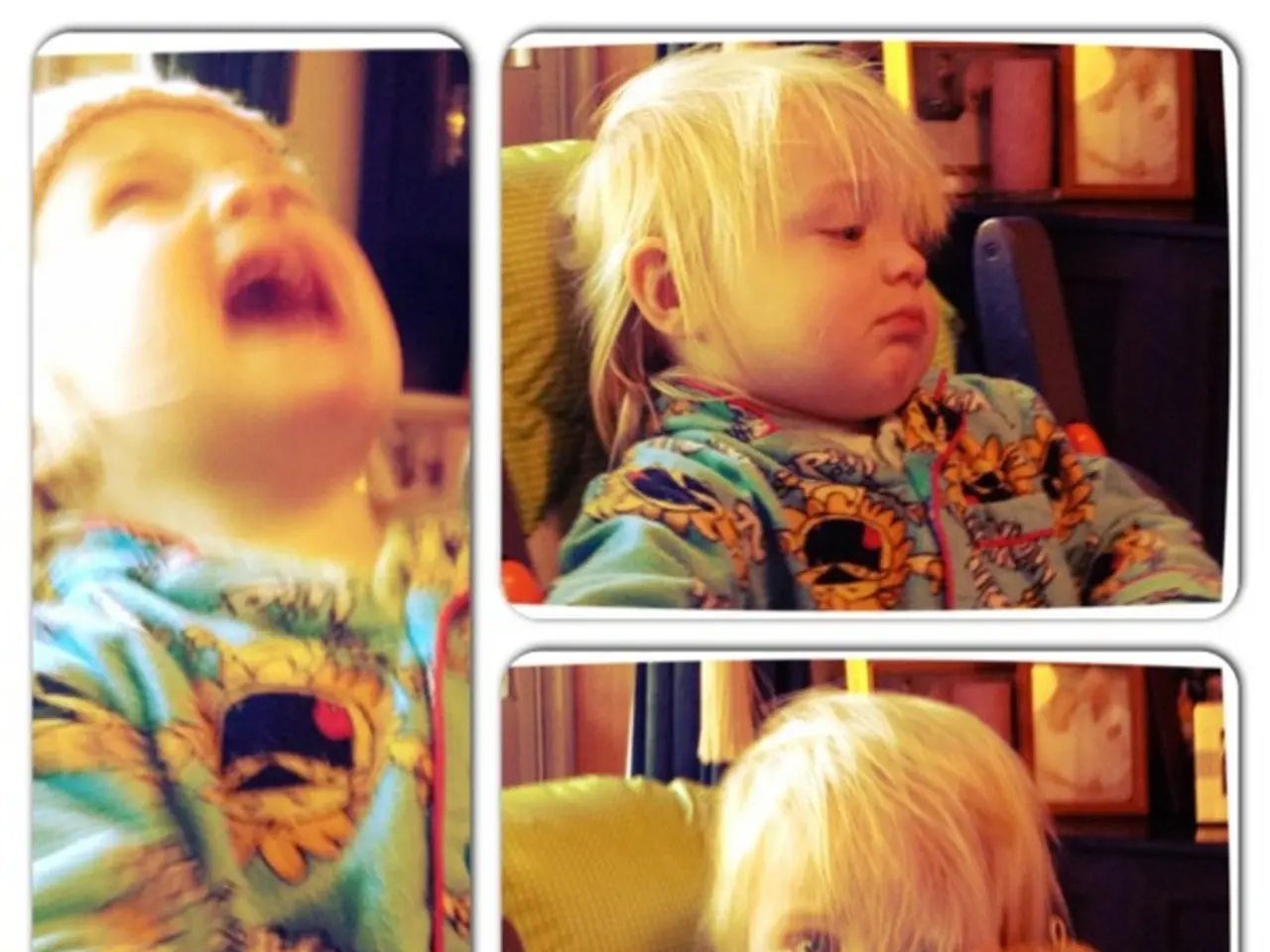Children constantly grapple with the persistent dread of underachievement. - "Children's daily lives are characterized by dread of making mistakes"
In a world where societal pressure and digital platforms often amplify the fear of failure, children are at risk of experiencing significant mental health impacts. According to Professor Giovanni Maio, a renowned doctor, philosopher, and university professor for medical ethics/bioethics, this persistent fear can lead to anxiety, depression, chronic stress, and a host of other issues that can hinder a child's overall development.
Professor Maio's concerns are not unfounded. A child raised under constant fear of failure may develop avoidance behaviors, procrastinate, and shy away from new opportunities, further hindering personal growth and reinforcing a cycle of negative outcomes. Early struggles with emotion regulation, such as difficulty managing frustration or excitement, are strong predictors of anxiety and depression in adolescence.
The child's sense of self-worth is profoundly shaped by their environment, including the messages they receive from society and, increasingly, from social media. Constant pressure to succeed—and fear of the consequences of failure—can lead to chronic self-doubt, guilt, and a negative self-image. Over time, this may result in a diminished sense of personal agency, making it difficult for the child to envision or pursue future goals with hope and purpose.
Prolonged exposure to fear and anxiety can cause emotional numbing or desensitization, making it harder for children to connect with peers and build successful relationships. They may also imitate the negative behaviors they witness, viewing stress and aggression as normal responses to challenge. This cycle can perpetuate isolation and reinforce maladaptive coping mechanisms, further undermining healthy development.
To combat these effects, early intervention, emotional support, and fostering resilience are critical. Professor Maio advocates for attractive offers instead of social media bans for minors, emphasizing the importance of media and digital competence. He also suggests a need for a special pedagogy that addresses the specific needs of exceptional students, and a more flexible system that values teachers caring for students.
In his philosophy of childhood, Professor Maio values childhood as a phase of life with intrinsic value and special abilities from which adults can learn. He does not support the inner child as a real therapy concept but sees childhood as a form of self-forgetfulness and basic attitude towards the world that embodies something of deep life art.
Despite the challenges posed by the pandemic, Professor Maio's focus remains on the topic of vulnerability, a significant concept for him as a philosopher. He advises the German Bishops' Conference, the Federal Government, and the German Medical Association, urging them to prioritise the emotional well-being of children and young people, who were endangered due to psychological effects of measures, but this was often overlooked. During the pandemic, politics relied on a hermeneutics of fear and division to make the population compliant, a strategy that Professor Maio believes has far-reaching consequences for the mental health of future generations.
References: [1] Long-term mental health effects of persistent fear of failure in children. (n.d.). Retrieved from https://www.example.com/fear-of-failure-effects [2] Emotional and behavioral development in children: The impact of persistent fear of failure. (n.d.). Retrieved from https://www.example.com/emotional-development [3] Self-concept and future orientation: The influence of persistent fear of failure in children. (n.d.). Retrieved from https://www.example.com/self-concept [4] Social and relational impact: The effects of persistent fear of failure in children. (n.d.). Retrieved from https://www.example.com/social-impact
A comparative table summarizing the long-term effects of persistent fear of failure in children can be found below:
| Area | Long-Term Effects | |---------------------|---------------------------------------------------------------------------------------------------| | Mental Health | Anxiety, depression, chronic stress, low self-esteem, shame, helplessness[1] | | Emotional Skills | Poor emotion regulation, withdrawal, sadness, despair[2] | | Self-Concept | Negative self-image, guilt, diminished hope, reduced future orientation[3] | | Social Development | Emotional numbing, social withdrawal, difficulty forming relationships, imitation of negative behaviors[4] | | Behavioral Patterns | Avoidance, procrastination, reluctance to take on new challenges[1] |
- In light of Professor Maio's philosophical approach to childhood, it is essential to implement a community policy that promotes health and wellness, addressing the health policy concerns related to the potential mental health impacts of persistent fear of failure in children.
- Given the extensive research on the impact of persistent fear of failure on a child's emotional development, it is crucial to develop education-and-self-development programs that foster resilience, mental-health awareness, and lifestyle strategies to enhance children's ability to manage their emotions and maintain positive self-images.
- As society continues to evolve with the influence of science and technology, health policy must emphasize the importance of integrating health-and-wellness practices in digital platforms, ensuring a safer environment for children that supports their growth and development rather than amplifying their fears and anxieties.




